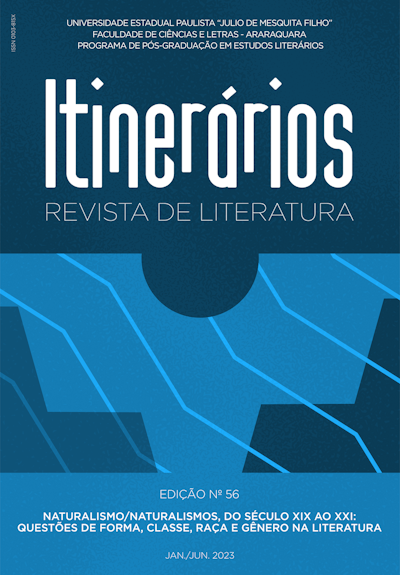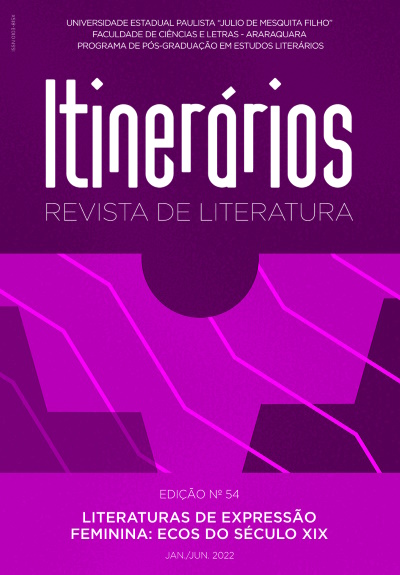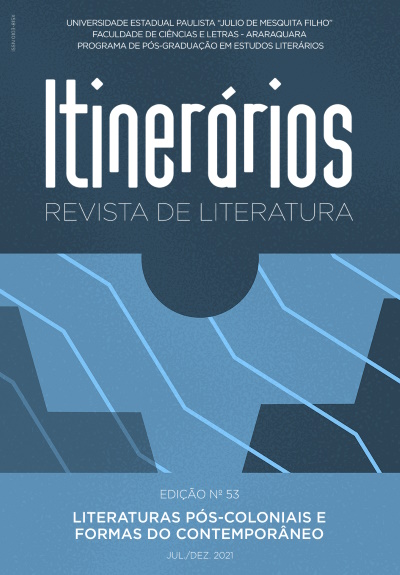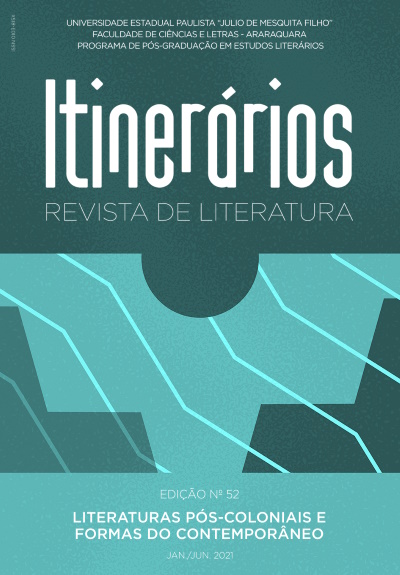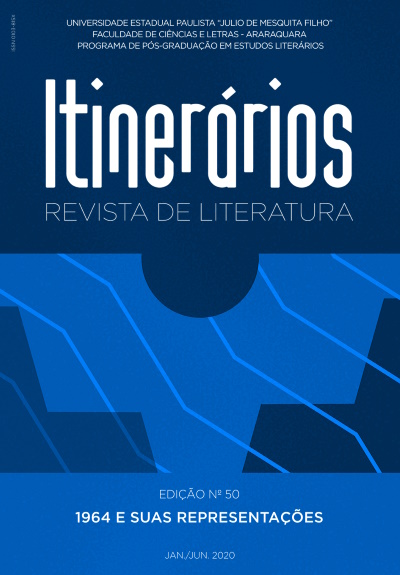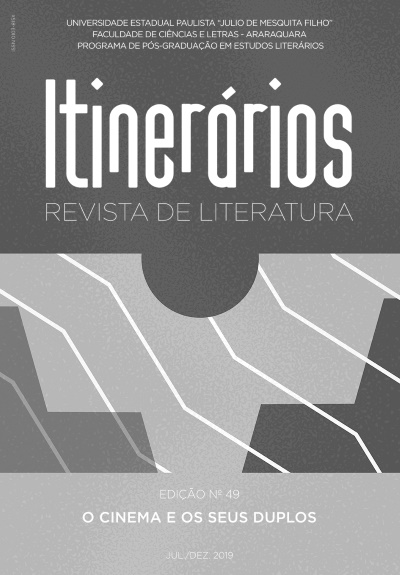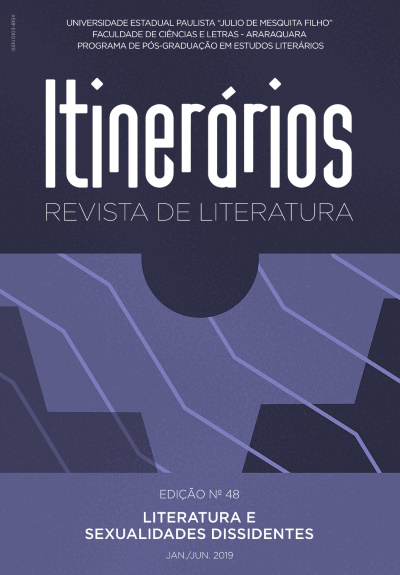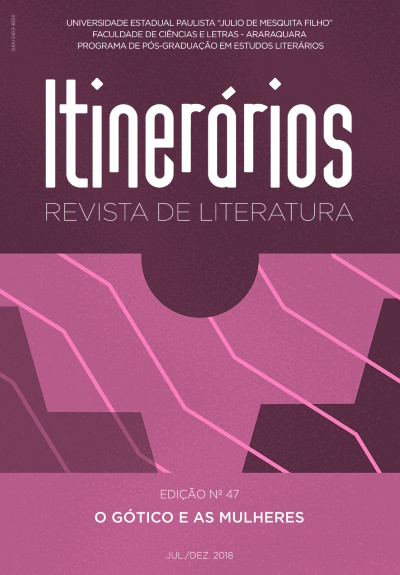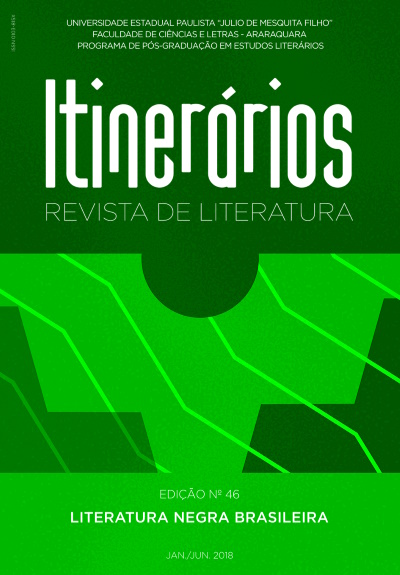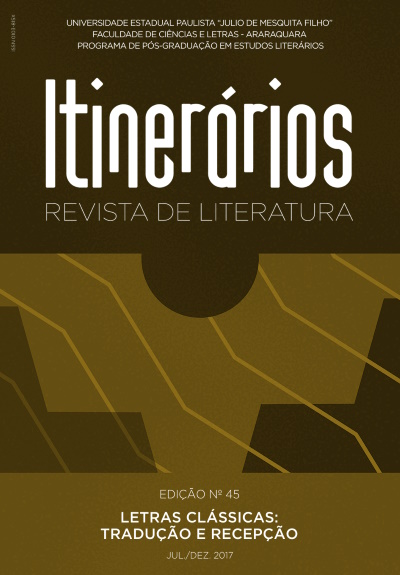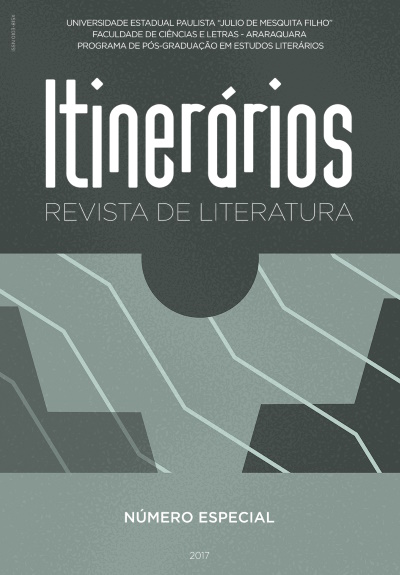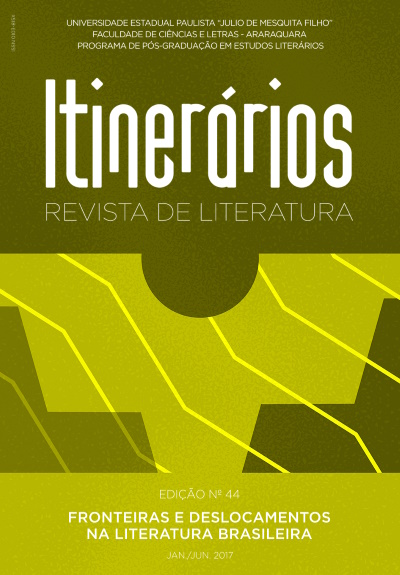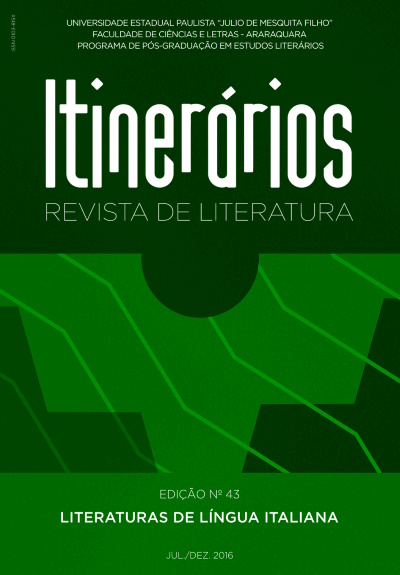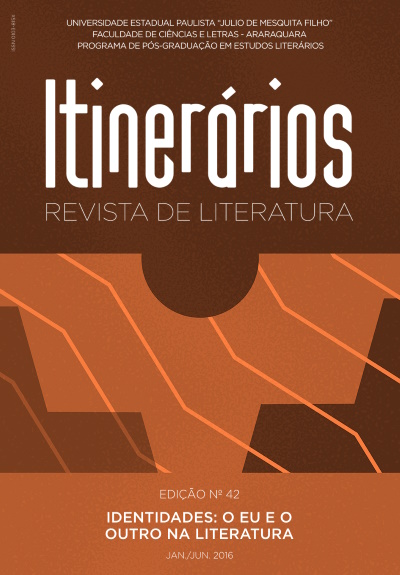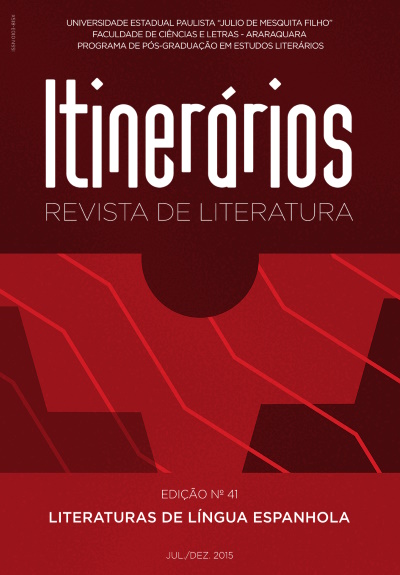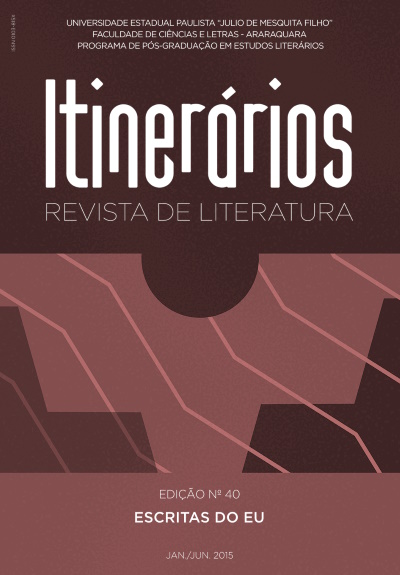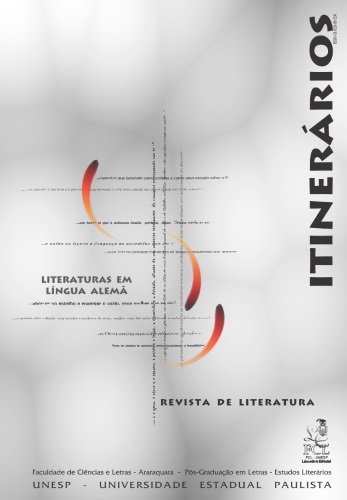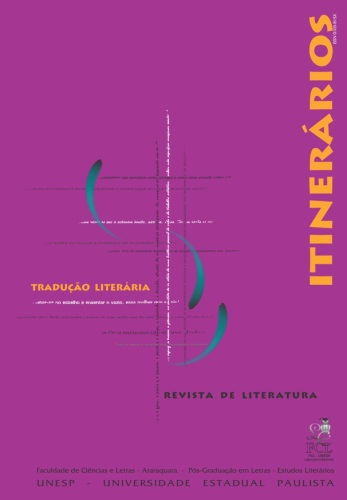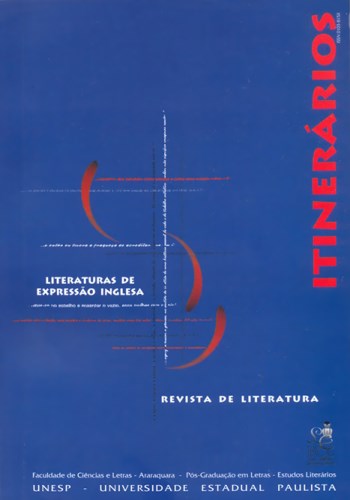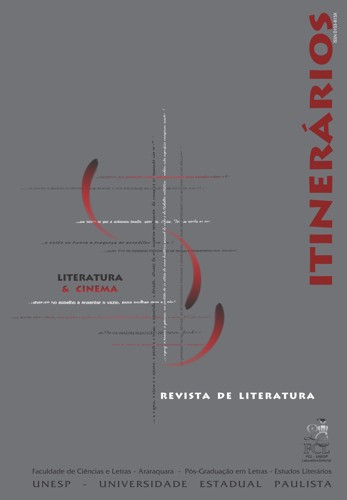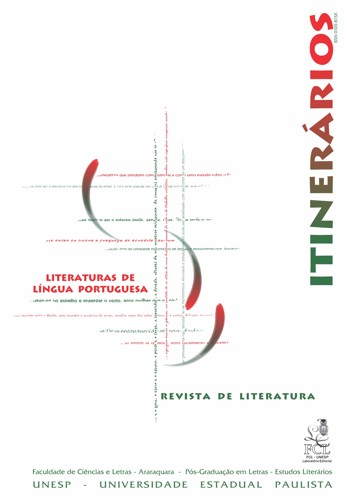Archives
-
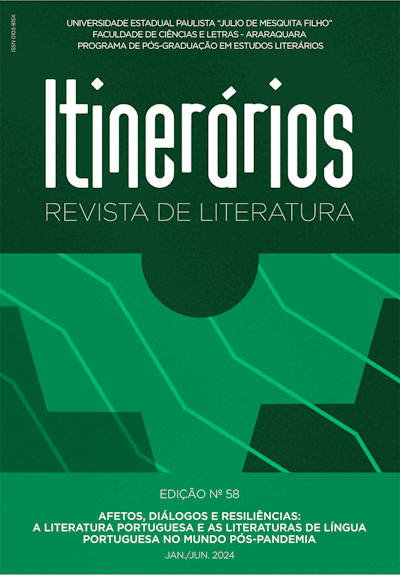
AFFECTIONS, DIALOGUES AND RESILIENCE: Portuguese literature and Portuguese-language literatures in the post-pandemic world
No. 58 (2024)Dossiê temático dedicado ao XXIX Congresso Internacional da Associação Brasileira de Professores de Literatura Portuguesa (ABRAPLIP) realizado na Universidade Federal de São Carlos (UFSCar) entre 25 a 29 de setembro de 2023. Publicam-se textos selecionados apresentados em conferências, plenárias e semiplenárias.
-
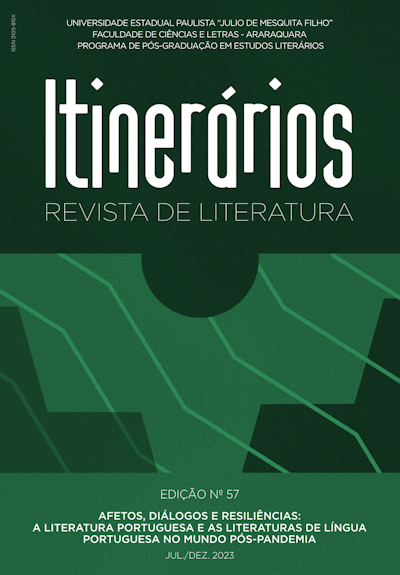
AFFECTIONS, DIALOGUES AND RESILIENCE: Portuguese literature and Portuguese-language literatures in the post-pandemic world
No. 57 (2023)Dossiê temático dedicado ao XXIX Congresso Internacional da Associação Brasileira de Professores de Literatura Portuguesa (ABRAPLIP) realizado na Universidade Federal de São Carlos (UFSCar) entre 25 a 29 de setembro de 2023. Publicam-se textos selecionados apresentados em conferências, plenárias e semiplenárias.
-
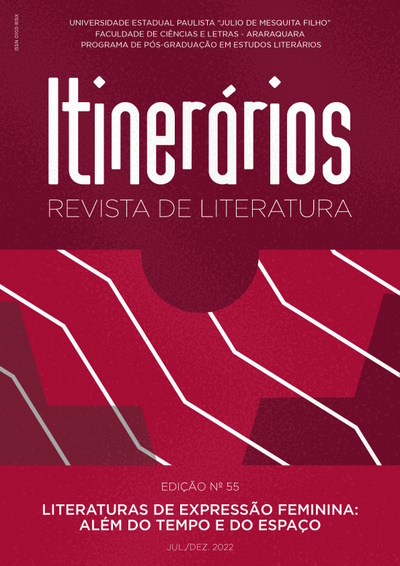
Literaturas de expressão feminina: além do tempo e do espaço
No. 55 (2022)Over the last years, as a reflection of contemporary world issues that have raised feminist movements such as Me too, there has also been a greater interest in the literature of female expression in the academic scenario. With the pandemic, literature written by women has gained space beyond the academy, as seen by the number of book clubs, pages on social networks and digital influencers dedicated to reading and discussing both works by female authors of classics of universal literature, as well as contemporary Brazilian or foreign authors.
Starting with Mary Wollstonecrafts's groundbreaking work A Vindication of the Rights of Woman from 1794, which influenced all 19th century thinking, as well as the pioneering spirit of Jane Austen, who, among many other issues, questioned the condition of women in that society that was entering agrarian capitalism, with the only possibility of survival depending on a successful marriage, passing through other great writers such as the Brontë sisters, Mary Shelley, George Eliot, Elizabeth Gaskell, Emily Dickinson, Louisa May Alcott, the 19th century is consolidated as an inaugural and powerful moment with regard to literature written by women. Whereas the 20th century brings new waves of feminism, imperative voices such as Virginia Woolf claiming A Roof of One's Own (1929) for the modern woman, while questioning the feminine literary tradition.
The present dossier aims to propose a reflection on the bases of literature of female expression, from the 19th century, through the 20th century, and on its importance in the history of literature, until arriving at contemporary discussions that involve an intersectional debate of gender, race and class.
-
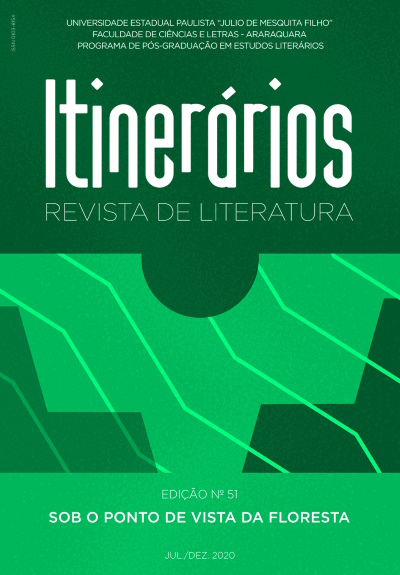
n. 51, 2020
Nesta nossa época de irrestrito triunfo tecno-digital e emergência climática, surgem legítimas e urgentes preocupações com a preservação da floresta, ameaçada por interesses vários. A tal ponto que um dos assuntos atualmente mais discutidos à escala planetária é precisamente a defesa do pulmão florestal da terra – a Amazónia.
A floresta não se restringe, evidentemente, à componente puramente ambiental e biológica. Como nos mostra Richard Pogue Harrison em Forests: The Shadow of Civilization, a floresta tem, de igual modo, sido ao longo dos séculos o espaço-chave de um imaginário extraordinário. Agora, em pleno século XXI, dominado cada vez mais pela Razão tecnológica e cada vez menos por consensos morais, tudo indica que a floresta se converteu no lugar de todas as preocupações. Dir-se-ia o último ponto de abrigo capaz de nos salvaguardar de uma catástrofe com proporções cataclísmicas. A floresta, numa palavra, adquire cada vez mais o valor de santuário. Um santuário frágil e à mercê da expansão radical da crise ecológica.
Em suma, hoje, quando pesadas ameaças pairam sobre os espaços florestais, pondo em perigo os seus ecossistemas e os seus habitantes, sejam eles trabalhadores indígenas ou populações rurais, torna-se, mais do que nunca, necessário repensá-la sob pontos de vista múltiplos, inovadores e interdisciplinares. Assim, o número 51 da revista Itinerários, em sintonia com perspetivas ecocríticas, pretende acolher para publicação textos focados na temática florestal e, mais latamente, as relações entre literatura e ambiente.
